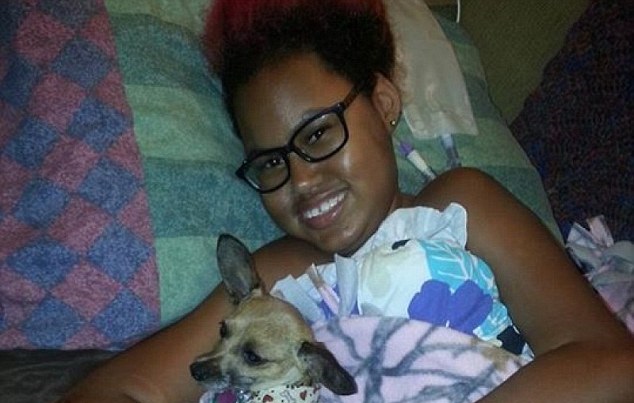Terminally Ill Teen Who Scheduled Her Death Killed Herself Thursday: “I’m Going to be Free”
The 14-year-old Wisconsin girl who made national headlines this summer when she decided that she did not want to go on living with a painful disease has died.
Jerika Bolen ended her life on Thursday in hospice care after suffering from type 2 spinal muscular atrophy, WBAY News reports. The young teen announced her decision to unplug her ventilator and end her life earlier this summer after undergoing her 38th surgery for the incurable disease.
Her mother supported her decision, but disability rights advocates and many others have been concerned about whether the young girl fully understood the irreversible decision she was making. Some have described her death as a suicide.
Earlier this summer, Jerika still was able to talk and live at home. Her family and friends even threw her a “last dance” prom to celebrate her life before she died.
In an interview with the Washington Post in July, Jerika said she felt sad about dying at first, but she was dreaming of “going to be with God. I’m going to be free. I have been realizing I’m going to get to walk and not have this pain anymore and not have to, like, live this really crappy life.”
Jerika said she had her last surgery to appease her family, but her constant medical care is “tearing them apart” and it’s “making them really sad that I’m going on hospice.” She also said she does not have a good “quality of life.”
Her mother, Jen Bolen, said she initially resisted her daughter’s plan to end her life, but later came to support it.
“I know she’s only 14, but she’s old enough to decide,” Jen said. “It’s her body and it’s her pain.”
However, Disabled Parents Rights and several other groups asked the local child protection services to investigate the situation. They argued that the young teen needed intervention, not encouragement to end her life. It is not clear from news reports whether an investigation was conducted.
SUPPORT PRO-LIFE NEWS! Please help LifeNews.com with a donation during our Fall Support Campaign
“I am certain Jerika suffered greatly during her inspiring life and I am certain her family endured untold psychological pain, alongside their daughter’s mental and physical anguish. And, yet, I believe that they erred in collaborating in her ending her life,” psychiatrist Dr. Keith Ablow wrote in reaction to the news of Jerika’s death at Fox News.
Ablow commended Jerika’s family and friends for encouraging her to make the most of life, taking her to movies and sleepovers, enjoying fireworks and a prom together, but he questioned why she was not encouraged to persevere and look forward to other joys in her future.
“Might she have been motivated to continue living were she introduced to children much younger than her, also suffering with Spinal Muscular Atrophy, who needed encouragement to get through their own immense challenges?” Ablow wrote.
“I do worry that when a 14-year-old asserts she wants to die that she could be searching, unconsciously even, for an ironclad objection by those who love her, in order for her to love herself and love life just a tiny bit more. Just enough to stay with them,” he added.
He also questioned whether more could have been done to alleviate Jerika’s physical pain.
It’s a question that the disability rights group Not Dead Yet, which opposes assisted suicide and euthanasia as deadly forms of discrimination, has as well. They group said it was shocked and grieved by the young girl’s death, and its members are wondering whether more could have been done to help Jerika.
In a statement, the group said people with Jerika’s condition usually live full lives into adulthood when they receive proper medical care. They criticized “a system that would so callously throw away the life of a beautiful disabled girl.” The group wondered how Jerika got the idea to end her life and whether she received counseling related to her suicidal thoughts, which are common among teens.
One of Jerika’s comments seemed to indicate that her decision could have been influenced by fears of being a burden to her family.
“I sat myself down and I thought, ‘Jerika, am I here for me or am I here for my family? I can’t even do anything besides lie in bed because I’m so sore,’” she said during one interview.
Fear of being a burden is common among people who are sick, elderly, depressed or disabled; and these fears can lead vulnerable people to consider suicide. According to Dr. Peter Saunders: “In Washington in 2013, 61% of people opting for assisted suicide give the fear of being a burden to family, relatives and caregivers as a key reason. 13% cited ‘financial implications of treatment’. In the same year in Oregon the equivalent figures were 49% and 6%.”
Not Dead Yet concluded: “Jerika Bolen deserved better quality health care and the same suicide prevention that a non-disabled teen would receive. “We ask one last question: What might have happened if Jerika’s request for a ‘last dance’ had been met with overwhelming public and media encouragement to live instead of a massive thumb on the scale in support of her death?”

